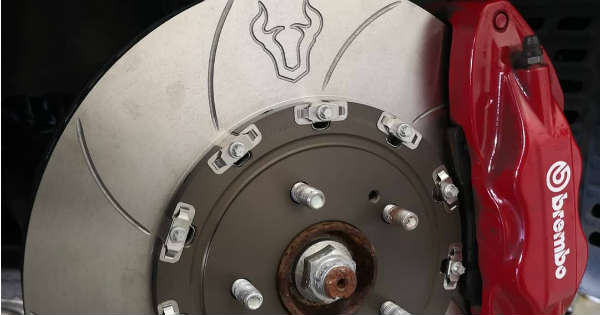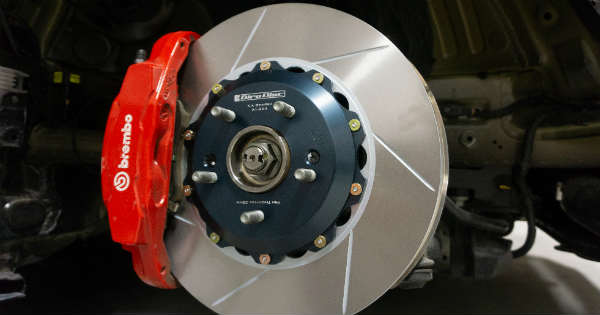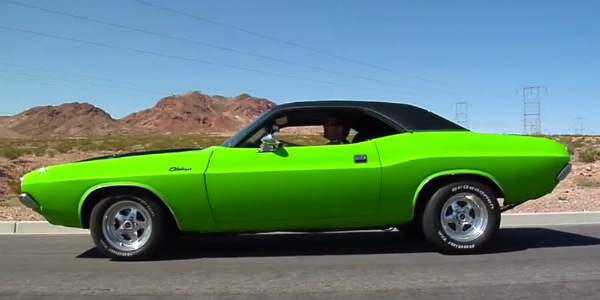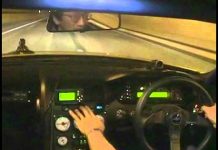Experts advise replacing your brake pads every 25,000 to 60,000 miles. You also need to replace your rotors anywhere from 30,000 to 65,000 miles. While this is a range of miles to do so, the exact timing depends on the driving conditions your vehicle is exposed to. Most drivers cannot precisely pinpoint when their brake pads need replacement. Thankfully, several signs show you need to replace the brake pads.

Here is how to know if your brake pads need replacing.
Squeaking And Squealing Sounds
One common sign that you need brake pad replacement is squeaking and squealing sounds from the brakes. When the brake pads are worn off and no longer responsive, they will start producing a squealing or squeaking noise. Therefore, finding a brake pad replacement is ideal if you encounter these noises. Keep in mind that the grinding of brakes causes the squeaking sound. If you don’t replace the brake pads on time, they will damage your rotors. This makes it quite expensive to repair them.
The Car Takes Longer to Stop
If your vehicle takes time to stop after hitting the brakes, you need to get a brake pad replacement. The significant loss of brake performance affects the vehicle’s ability to function and is often triggered by worn-out brake pads. You need to get new brake pads if you notice less-than-ideal stoppage times when you step on the brakes. Increased stoppage time means your brake pads need replacement or the brake fluid is low. Therefore, having your vehicle checked helps pinpoint the problem. This will help restore your vehicle’s braking abilities.
Grinding Sounds Mean You Need A Brake Pad Replacement
When you hear constant grinding sounds from your brakes, know that you need to get a brake pad replacement. Grinding sounds is a sign of damaged or worn-out pads; you must replace them. Some brake pads are equipped with built-in metal wear indicators designed to produce grinding sounds to remind you it is time to replace them.
If you fail to replace the pads after they start producing the grinding sounds, they could damage other brake system parts. Have a mechanic check the brakes immediately after you notice the squeaking sounds. The grinding sound could emerge from the pads or other brake system parts; either way, have the pads replaced.
The Brake Pad Indicator Light
When the brake pad indicator comes on, it is time to consider getting a brake pad replacement. Most modern vehicles are equipped with brake warning lights that appear on the dashboard. In most cases, the brake light system always comes on when there is a problem. When a light appears on the dash when the parking brake is engaged, there is a problem with the brake pad.
Replace Your Brake Pads When Due
Brake pads are an essential component of your vehicle’s braking system. Without perfectly functioning brake pads, your safety is at risk. Therefore, you must know when to replace the brake pads to prevent damage.
How To Know If You Need Your Brake Pads Need To Be Replaced
Experts advise replacing your brake pads every 25,000 to 60,000 miles. You also need to replace your rotors anywhere from 30,000 to 65,000 miles. While this is a range of miles to do so, the exact timing depends on the driving conditions your vehicle is exposed to.
Most drivers cannot precisely pinpoint when their brake pads need replacement. Thankfully, several signs show you need to replace the brake pads.
Here is how to know if your brake pads need replacing.
Squeaking And Squealing Sounds
One common sign that you need brake pad replacement is squeaking and squealing sounds from the brakes. When the brake pads are worn off and no longer responsive, they will start producing a squealing or squeaking noise. Therefore, finding a brake pad replacement is ideal if you encounter these noises. Keep in mind that the grinding of brakes causes the squeaking sound. If you don’t replace the brake pads on time, they will damage your rotors. This makes it quite expensive to repair them.
The Car Takes Longer to Stop
If your vehicle takes time to stop after hitting the brakes, you need to get a brake pad replacement. The significant loss of brake performance affects the vehicle’s ability to function and is often triggered by worn-out brake pads. You need to get new brake pads if you notice less-than-ideal stoppage times when you step on the brakes. Increased stoppage time means your brake pads need replacement or the brake fluid is low. Therefore, having your vehicle checked helps pinpoint the problem. This will help restore your vehicle’s braking abilities.
Grinding Sounds Mean You Need A Brake Pad Replacement
When you hear constant grinding sounds from your brakes, know that you need to get a brake pad replacement. Grinding sounds is a sign of damaged or worn-out pads; you must replace them. Some brake pads are equipped with built-in metal wear indicators designed to produce grinding sounds to remind you it is time to replace them.
If you fail to replace the pads after they start producing the grinding sounds, they could damage other brake system parts. Have a mechanic check the brakes immediately after you notice the squeaking sounds. The grinding sound could emerge from the pads or other brake system parts; either way, have the pads replaced.
The Brake Pad Indicator Light
When the brake pad indicator comes on, it is time to consider getting a brake pad replacement. Most modern vehicles are equipped with brake warning lights that appear on the dashboard. In most cases, the brake light system always comes on when there is a problem. When a light appears on the dash when the parking brake is engaged, there is a problem with the brake pad.
Replace Your Brake Pads When Due
Brake pads are an essential component of your vehicle’s braking system. Without perfectly functioning brake pads, your safety is at risk. Therefore, you must know when to replace the brake pads to prevent damage.






















